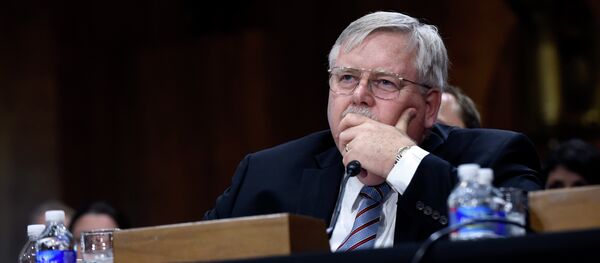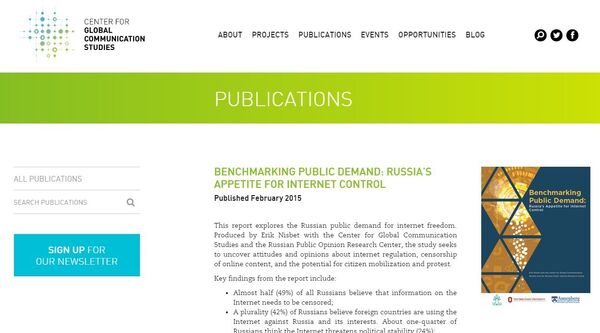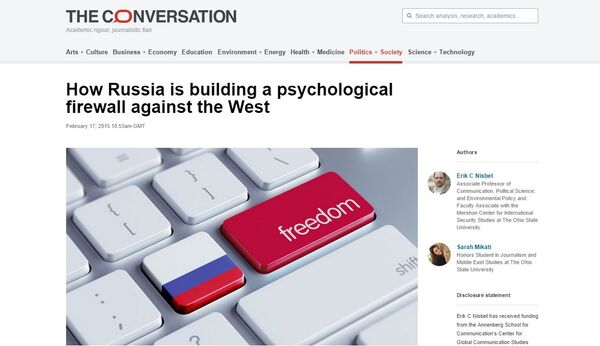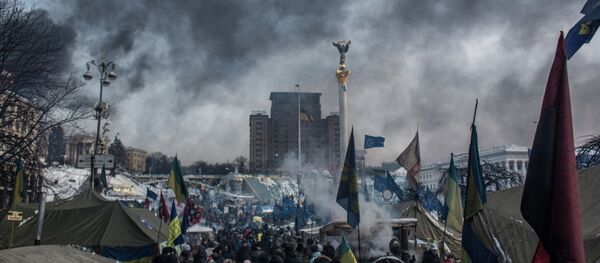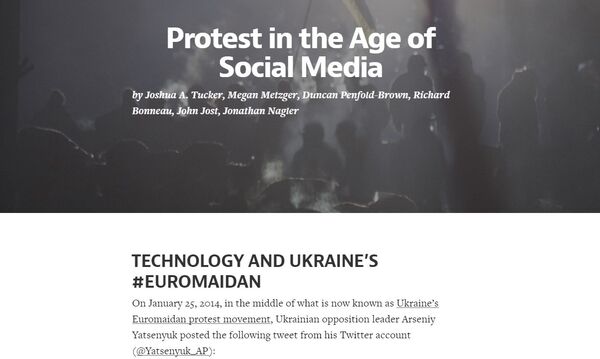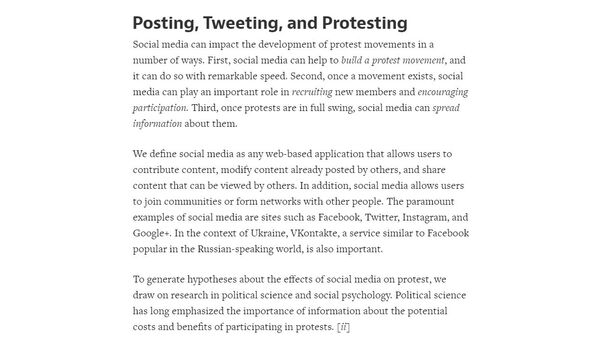The recently released results of a public survey on internet censorship got the Russian media buzzing on Monday.
Importantly, nobody seemed to look at who was really behind the study.
Let’s have a look at what was really going on.
On Monday, The Russian Public Opinion Research Center (VTsIOM), released the results of a survey it conducted in partnership with the Center for Global Communication Studies, the Annenberg School for Communication at the University of Pennsylvania.
Why the Russian side decided to reveal its results now, of all times, remains unclear, as the American side released their results back in February with a detailed report of Erik Nisbet, an associate professor of communication, political science, and environmental policy at the Ohio State University.
The report scrupulously analyzed the profile of Russian Internet users, their primary sources of information, developing certain categories of analysis such as; Russian Attitudes about the Influence of the Internet and Dangerous Content, Russian Attitudes about Internet Censorship, Russian Attitudes about Internet Regulation, Russian Citizen Mobilization and Protest.
Nisbet also wrote an article in The Conversation where he shared some of his conclusions and revealed that the survey was “partly funded by the United States Department of State.”
And here are some of the questions the Department of State is apparently quite interested in.
“Russians were [also] asked if the Internet posed a threat across five different dimensions, namely a) threatening Russian political stability, b) substantially increasing the rate of suicides, c) threating family values, d) threatening the strength of social ties in Russia, and e) being used as a tool against Russia by foreign countries,” says the report.
“If there was a possibility of a mass protest or demonstration against government measures to restrict or censor the Internet in their local community was also asked of Russian Internet users. A follow-up question then asked if respondents would personally take part in such mobilization if it occurred.”
“The survey also asked Russian Internet users to select up to three types of Russian government censorship of or restrictions on the Internet that may motivate them to engage in mass citizen mobilization and protest in defense of Internet freedom.”
“Russian Internet users were also asked under what circumstance they would or would not support the Russian government temporarily shutting down the entire Internet within Russia.”
Interestingly enough, there is another survey available in the Internet.
Conducted by the New York University Social Media and Political Participation (SMaPP) laboratory, and published through Carnegie Corporation of New York, which researched the influence of the internet and social media on a major political protest or upheaval.
Having analyzed the development of events in Ukraine, which started with what is called the Euromaidan protest movement and led to the civil war in the country, it came to a conclusion that “it is almost impossible to think of a major political protest or upheaval occurring without social media being part of both the incident and the ensuing narrative.”
“Indeed, the Ukrainian Euromaidan protest movement may go down in history as the first truly successful social media uprising,” it states.
The lab has been especially focused on understanding the relationship between social media and mass protest.
“Social media can impact the development of protest movements in a number of ways. First, social media can help to build a protest movement, and it can do so with remarkable speed. Second, once a movement exists, social media can play an important role in recruiting new members and encouraging participation. Third, once protests are in full swing, social media can spread information about them.”
“Looking at social media and political protest more generally, it’s natural to conclude that the days of protest in the absence of a significant social media presence are surely coming to an end. What this means is that in the future, we can expect protests and protest movements to develop more rapidly than in the past, especially as social media makes it easier for individuals and groups to solve logistical problems and overcome barriers to action.”
And with all the above in mind, the conclusions put forward by Erik Nisbet have an absolutely different meaning:
“Russia is not the only illiberal democracy increasing control over domestic and foreign online content while attempting to convince its citizens of the threat posed by a free and open internet.”
“In both the Russian and Turkish cases, internet censorship and information control help the regimes’ efforts to build and maintain public support, or at least passive acceptance, for their foreign policy objectives.”
“Promoting media and internet freedom – and with it public understanding and demand for these freedoms – should be considered among key American foreign policy priorities as suggested by former Secretary State Hillary Clinton back in 2010.”
Internet freedom is seen as essential for the US in terms of spreading anti-government protests. Indeed, the US State Department's USAID program has been openly teaching the methods of propagation of mass media protests around the world. Essential to this is an internet which is open to manipulation, so while a free Internet is ultimately desirable, it is interesting to see how the US State Department is actively surveying the Runet.


